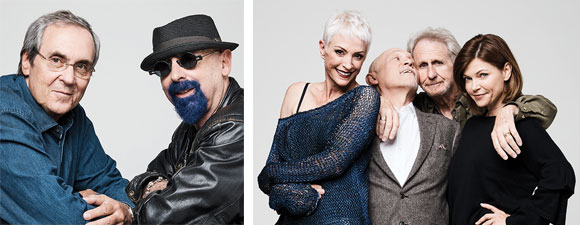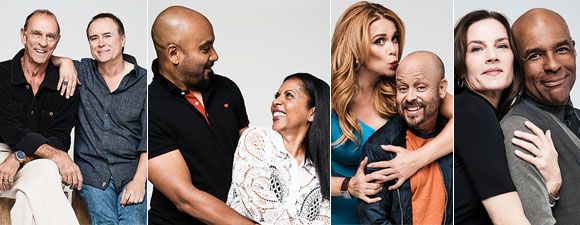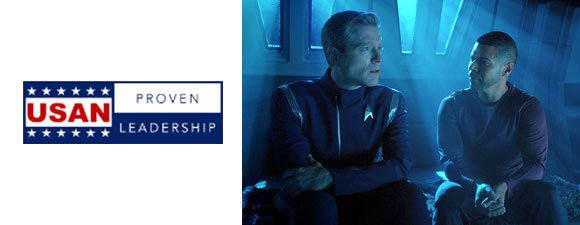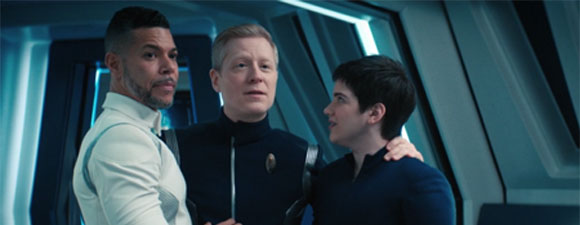Star Trek: Deep Space Nine At Twenty-Five
2 min read
It’s been twenty-five years since Deep Space Nine made its debut and some of those who created and acted in the show spoke about taking roles and serialization instead of the usual stand-alone episodes for which earlier Trek was known.
Nana Visitor almost didn’t take on the role of former freedom-fighter Kira Nerys. Her manager told her, “you will kill your career if you do this job. Turn it down.”
But a call from Rick Berman changed her mind. “By the end of the call, [Berman] had convinced me that I did want to be a part of it whether it impacted the rest of my career or not,” said Visitor. “When I read the script, I thought, ‘That’s a man’s role. That’s not for me.’ Yet it was all I wanted to do. I hated every part that I had to play where I was chastising a husband or getting upset about the carpet. And I did a lot of those. Any time I could get my teeth into something, that was my flow state. That’s why I was an actor. Major Kira was like Disneyland for an actor.
“Some people in the Star Trek world were like, ‘That’s not what a woman in Star Trek should be. That’s the wrong thing to be teaching.’ But what I saw her as was a woman of appetite and gray area — lots of gray area. Very fallible, but growing and trying. And that’s all over television now.”

At first, the writers tried to make the show similar to what had been done on Star Trek in the past. “We tried all these different types of things and none of them really seemed to work,” said Ira Behr. “The standalone episodes just kind of bored the hell out of us for the most part. We were struggling. Then the episode that seemed to work at the end of season one had the double whammy of Duet and In the Hands of the Prophets. So by the end of season one, I felt that I had a handle on what the strength of this show was, which was building on this complicated backstory [creators] Michael [Piller] and Rick [Berman] had given the show.”
“I think the great Michael Piller had an idea of where he wanted to go with the narrative, but it took the combination of Michel and Ira to really gel that,” said Alexander Siddig. “And Rick Berman was a great yes man. Any idea he thought was good, he would say, ‘Yes, try that.’ Rick broke the mold. He was the ultimate boss because he let Michael and Ira really try something pretty controversial at the time.”
A documentary on Deep Space Nine, What We Left Behind: Looking Back at Star Trek: Deep Space Nine, is in post-production and due out this summer.






